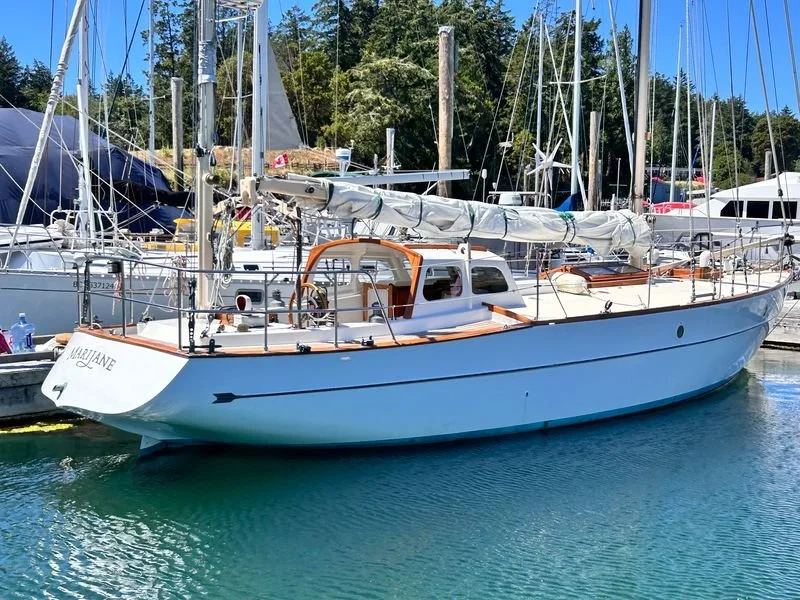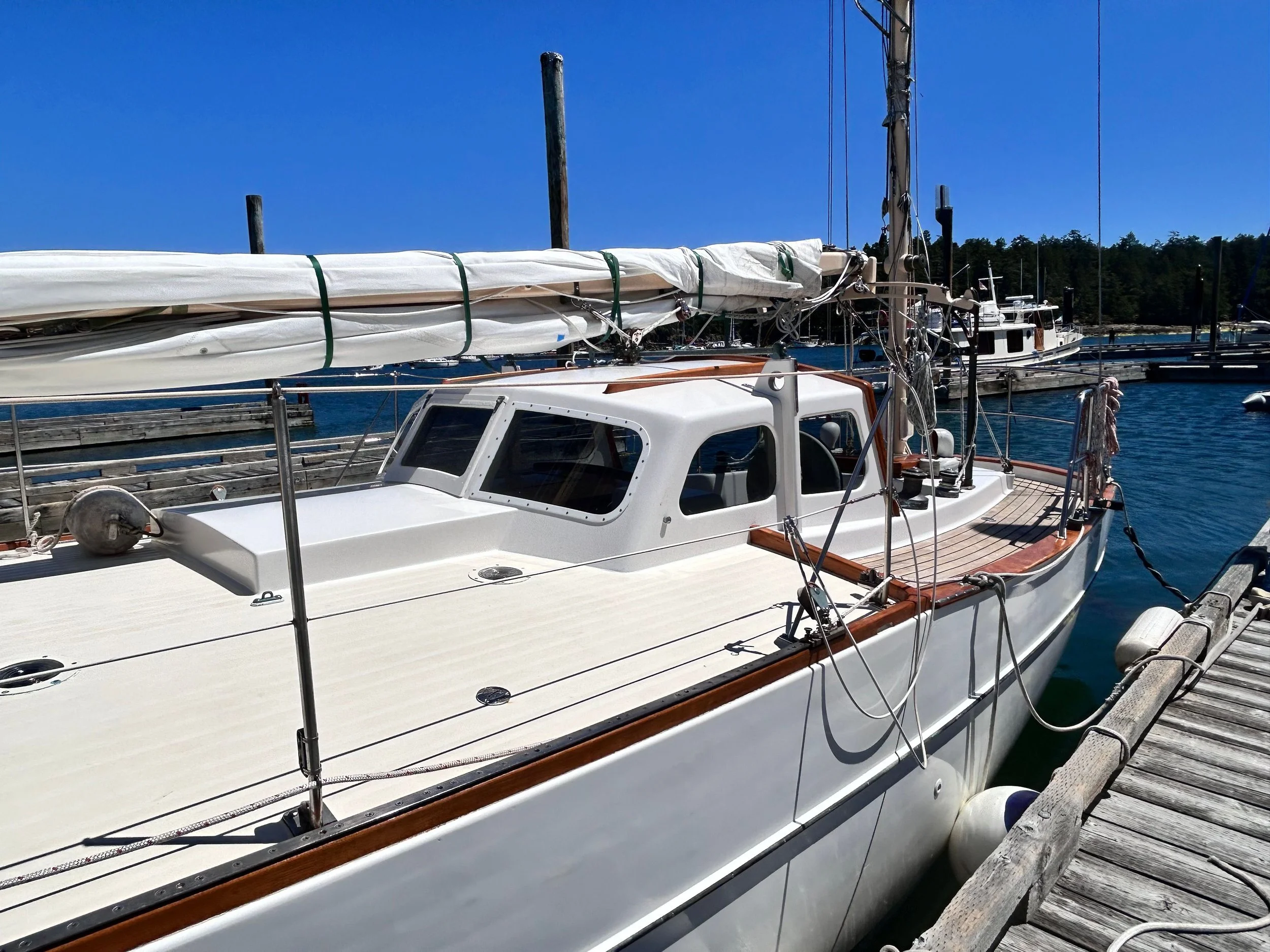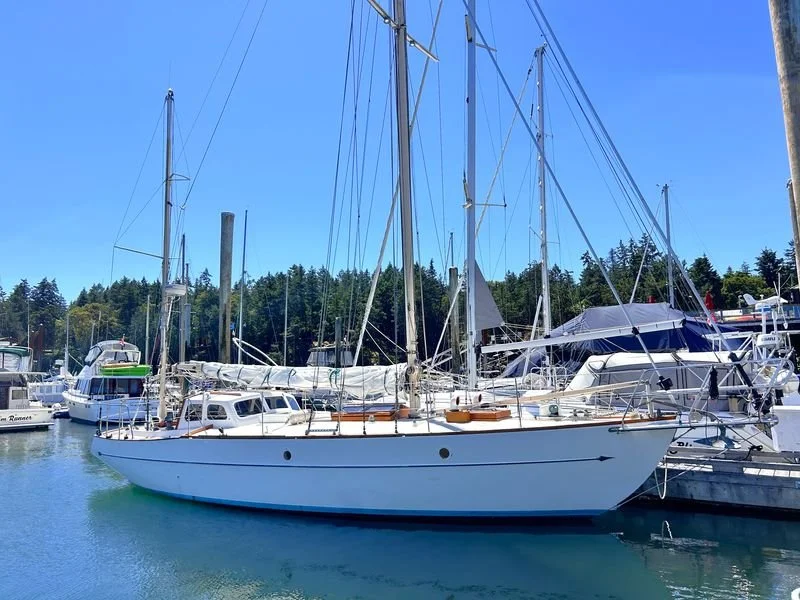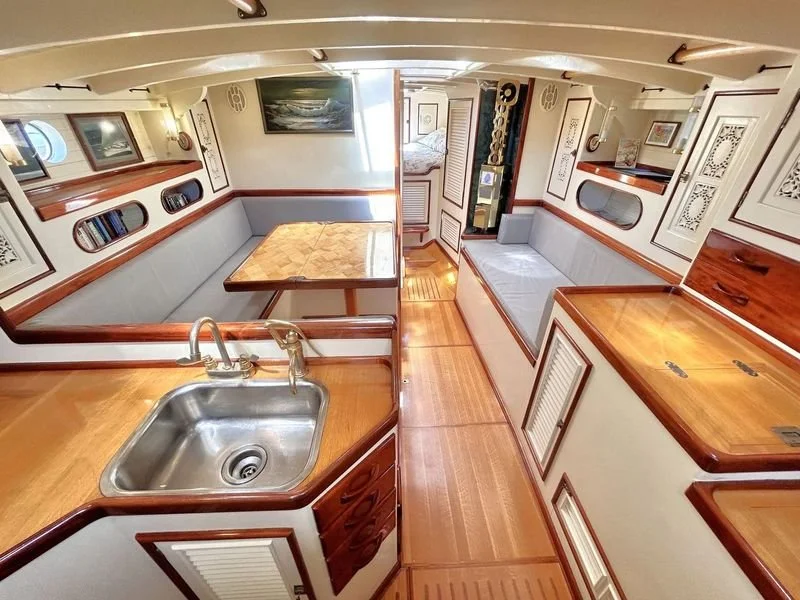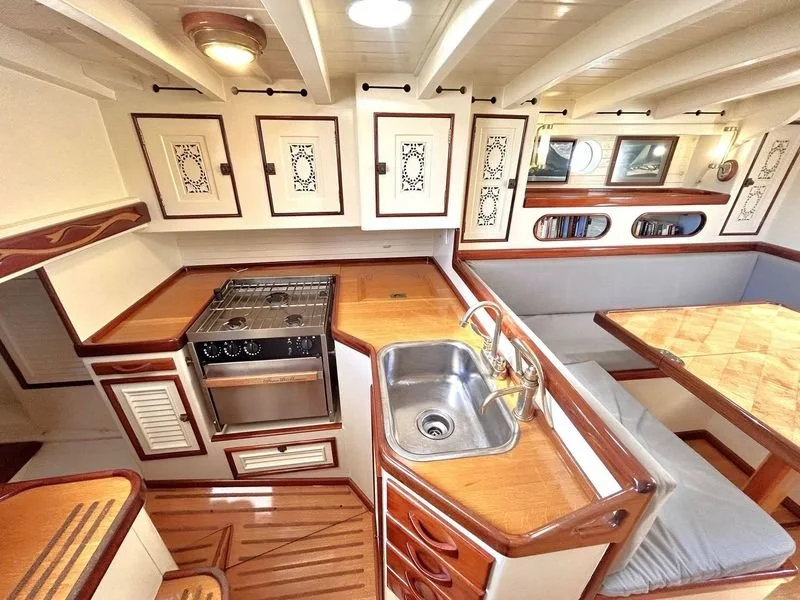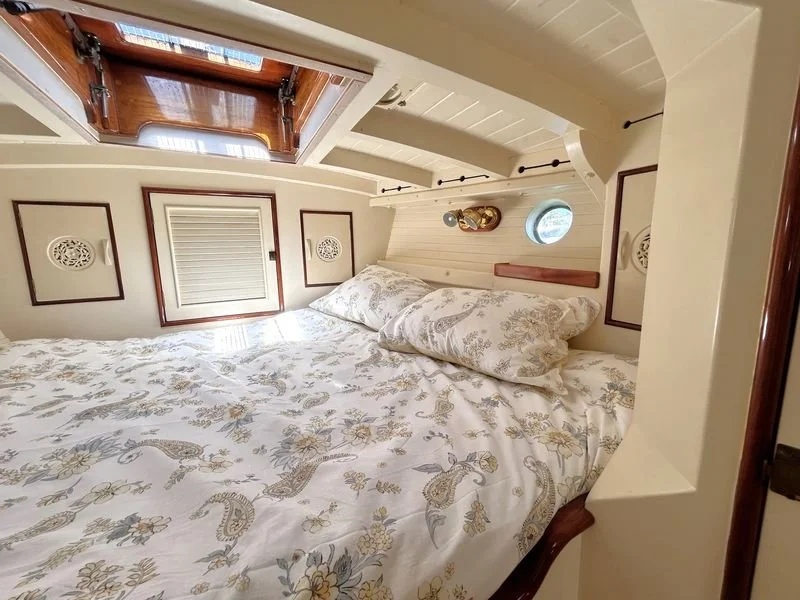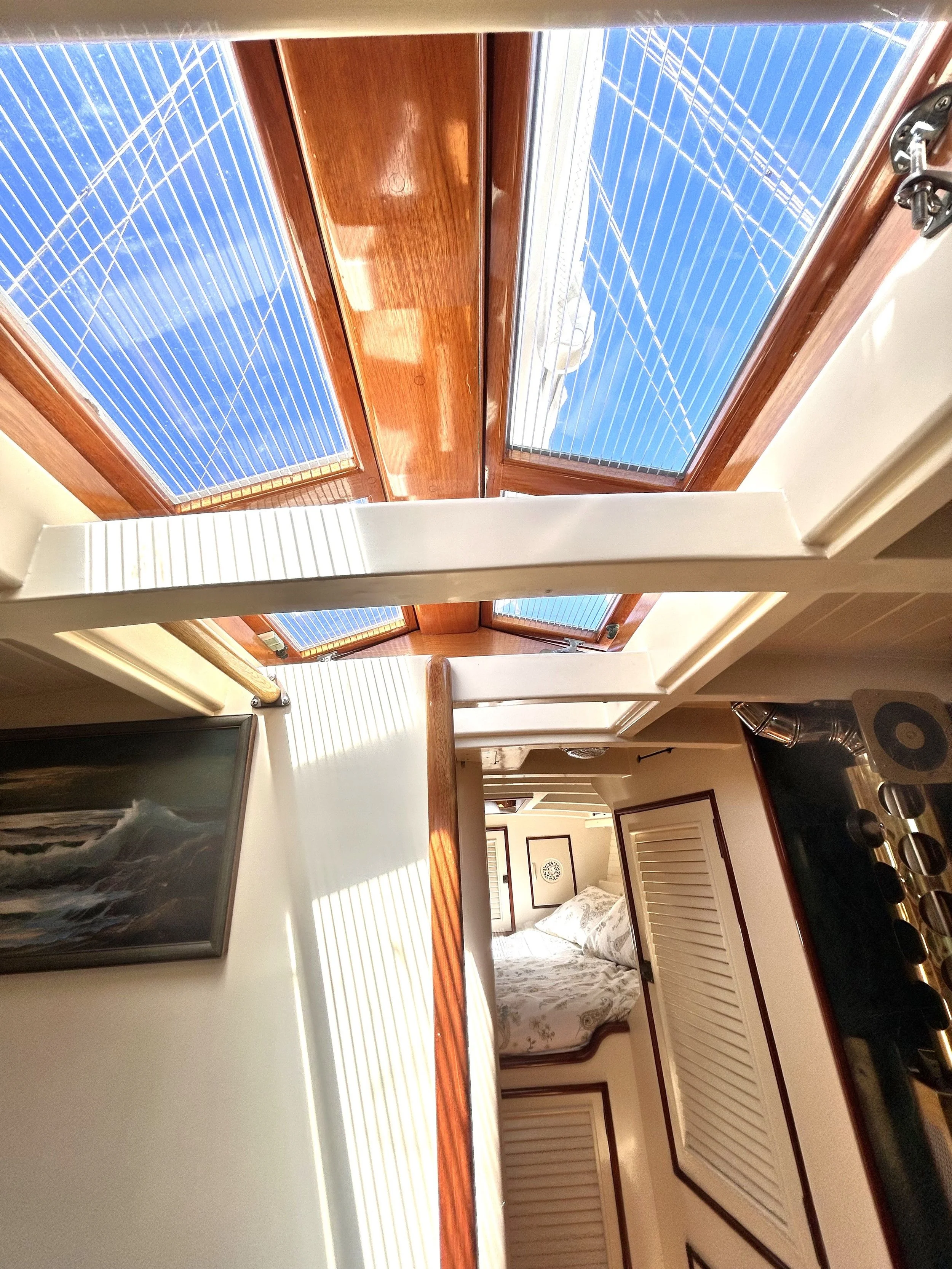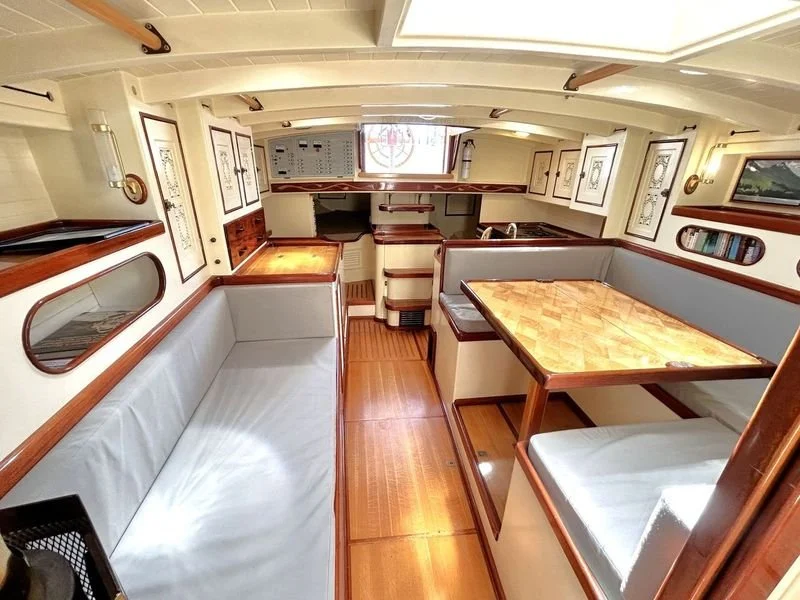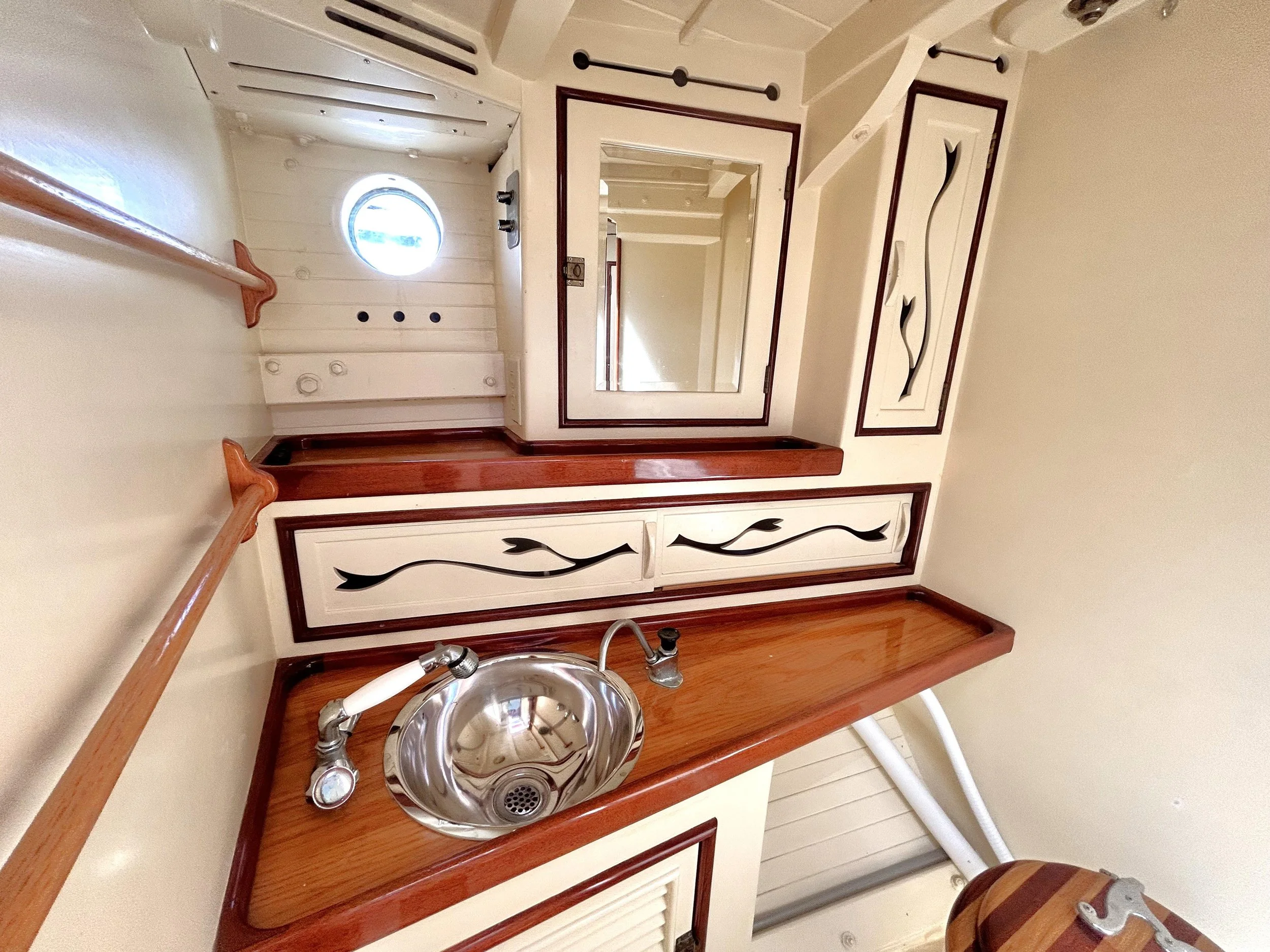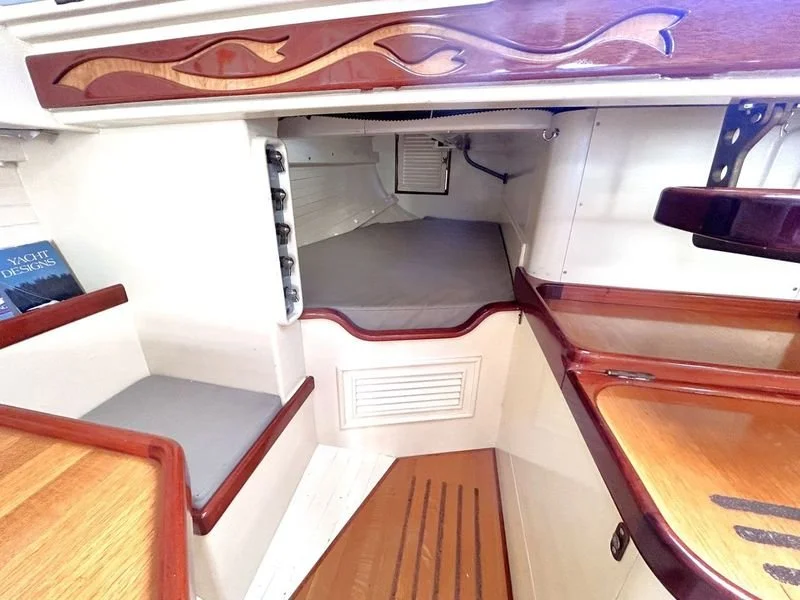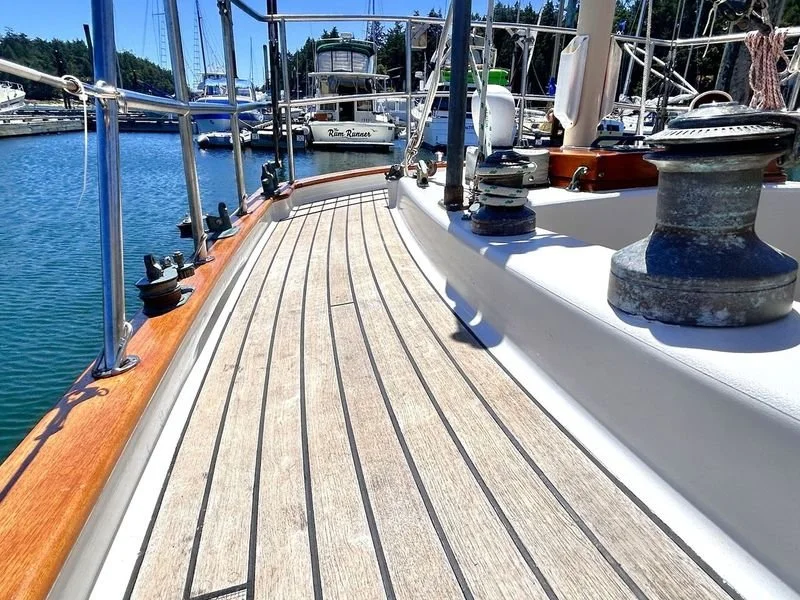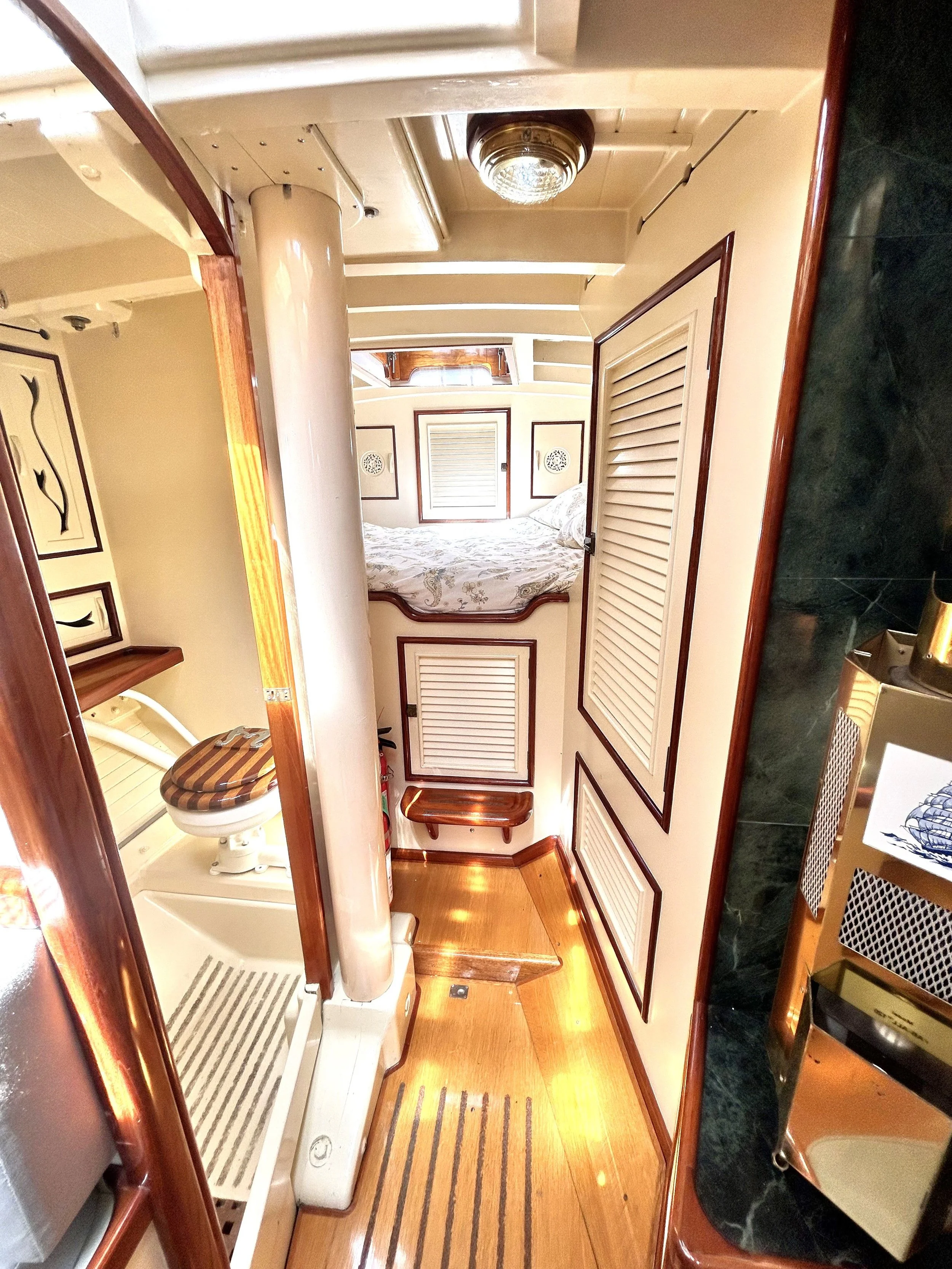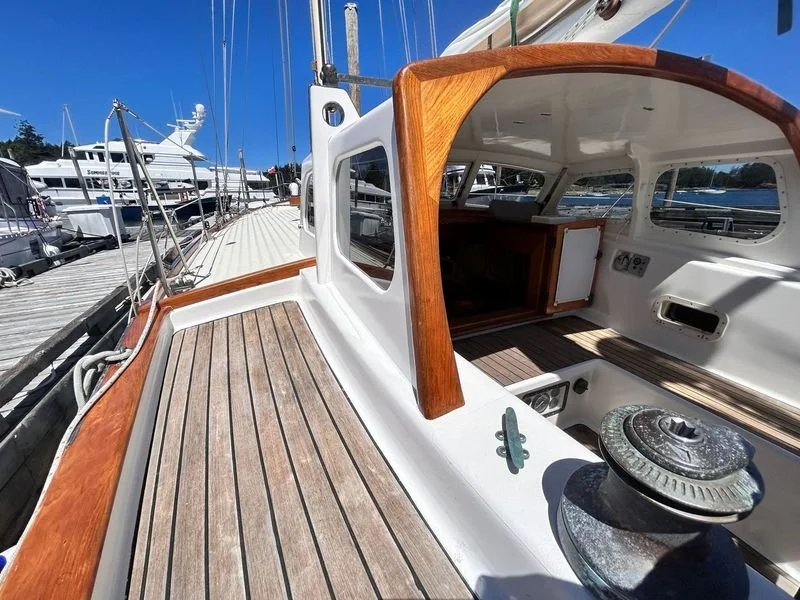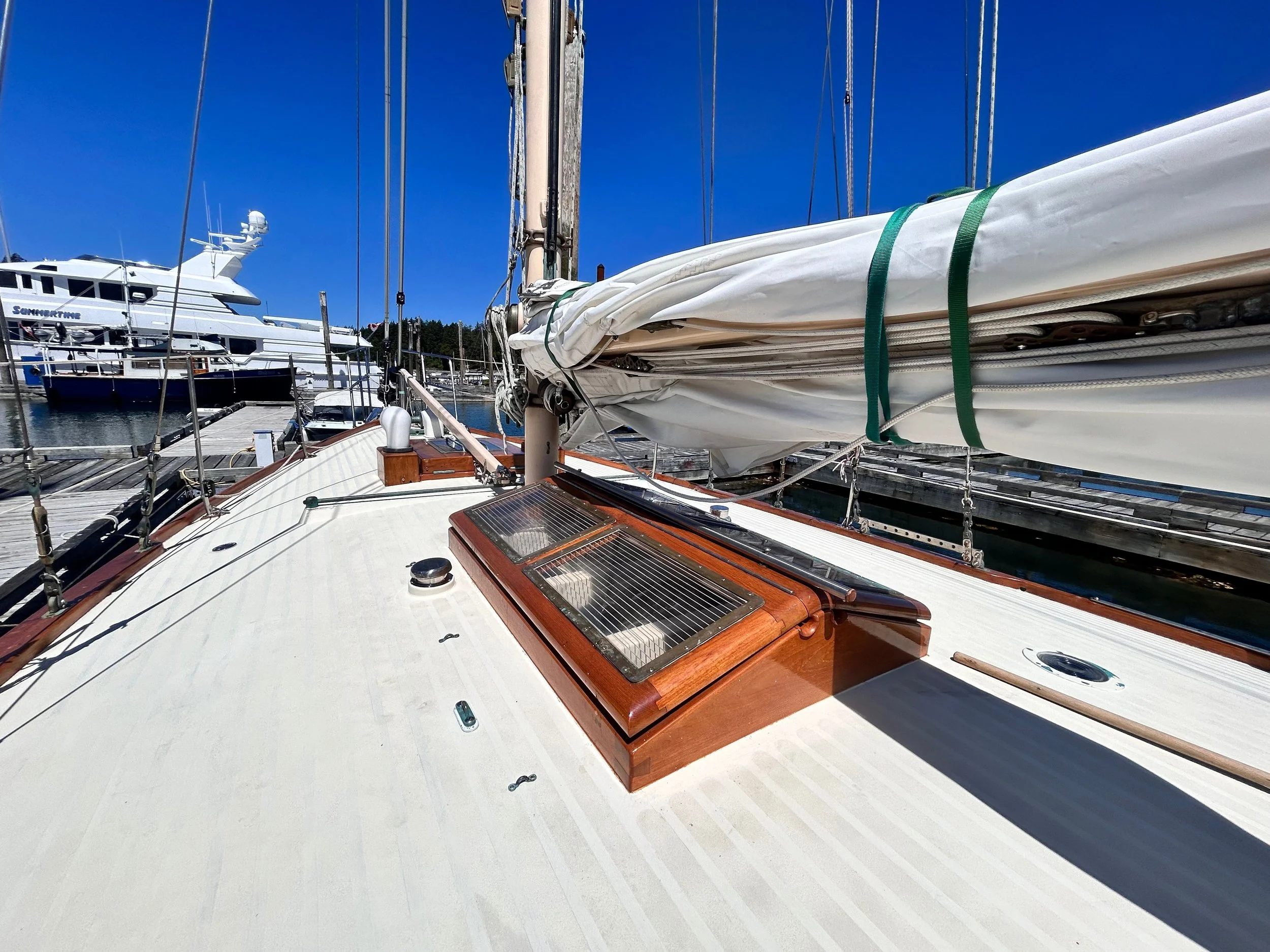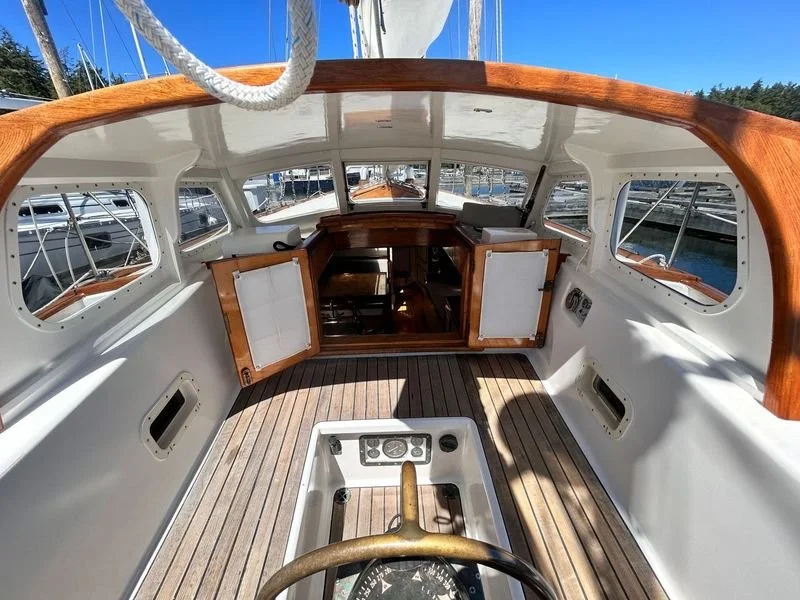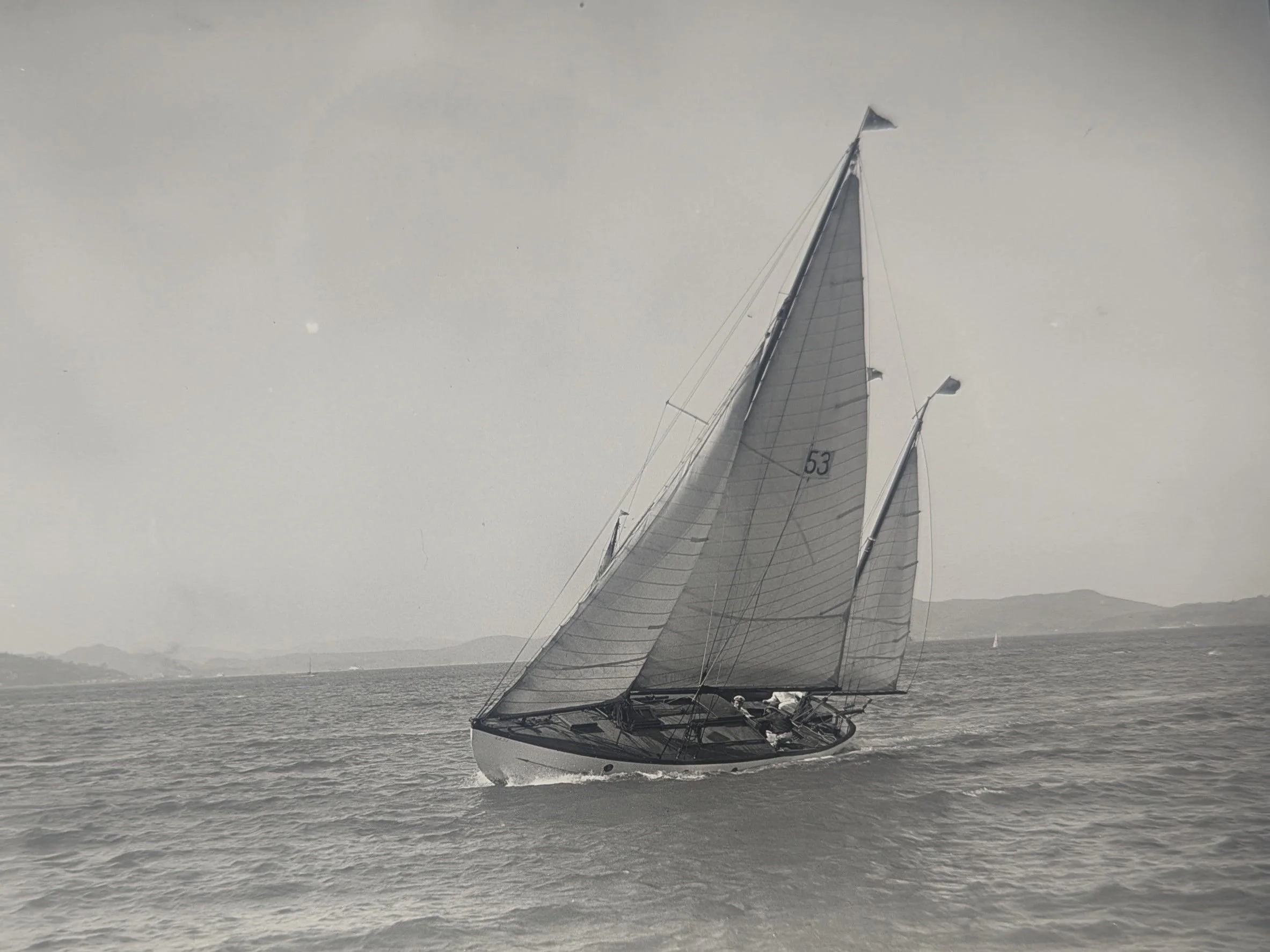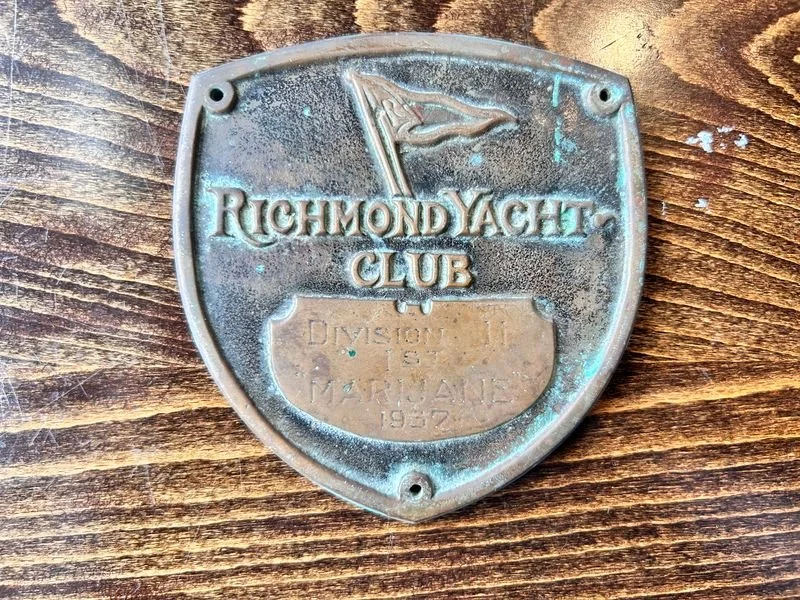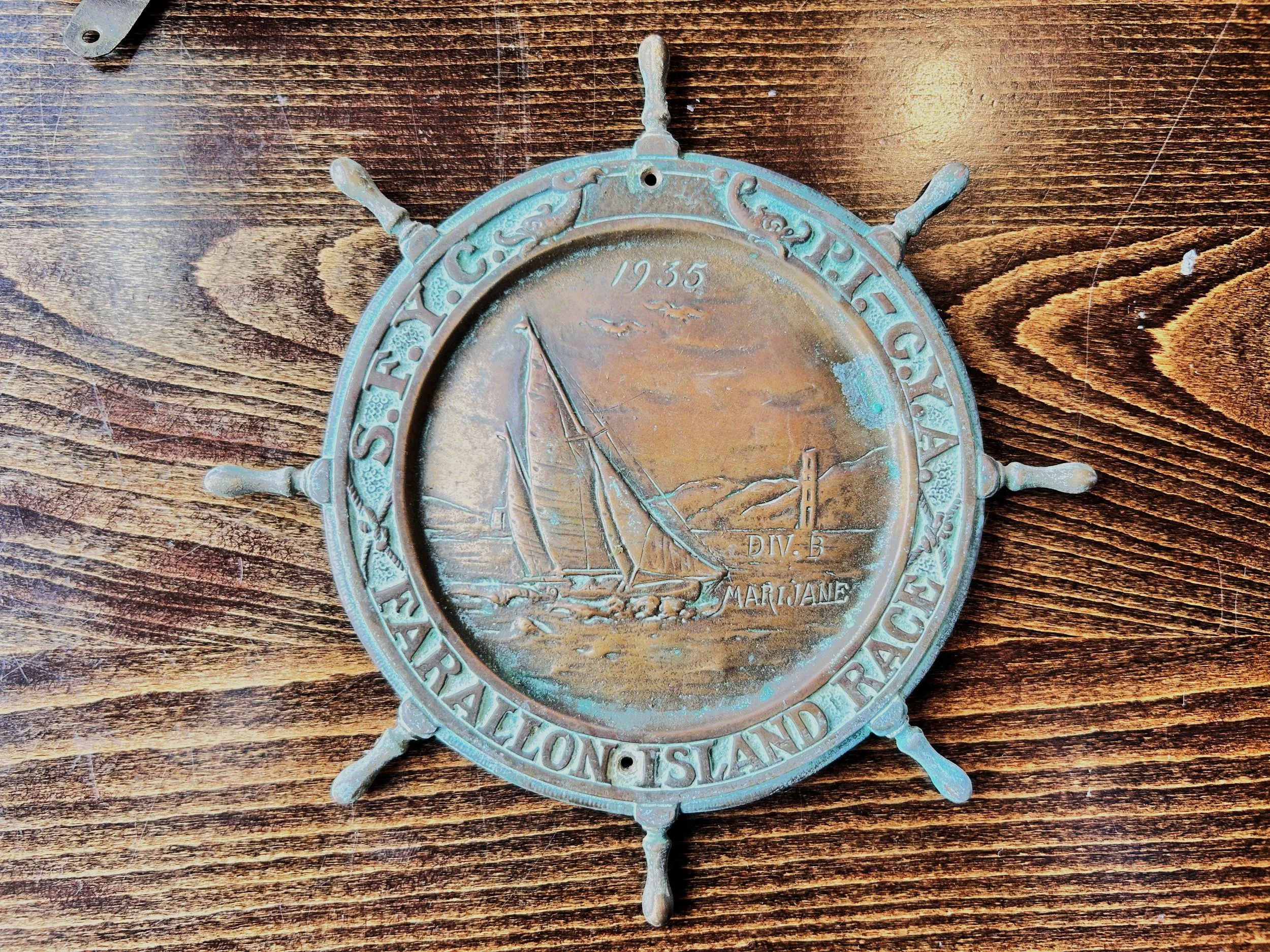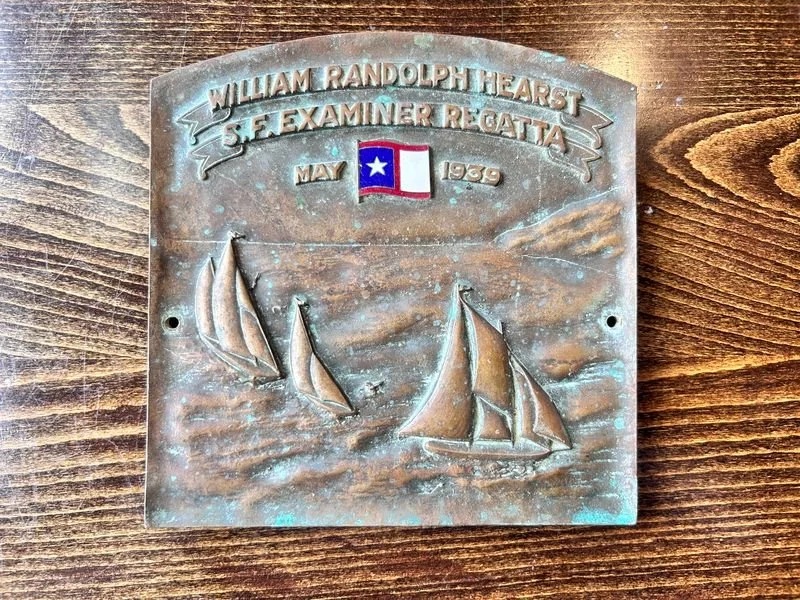Wooden Boats FOR SALE
We would love to post your boat. Abernethy & Gaudin is pleased to list some of the most beautiful boats built by hand. We have selected good quality wooden boats to feature for sale. Our listings are mostly west coast from Alaska to California.
Want to list your wooden boat with us? It’s a free service. All you have to do is email us with your contact information and description of your boat, several photos and, most importantly, a price in Canadian dollars. After we decide if the listing is a good fit for us, we will post it and the buyer will inquire with you directly.
Once the boat sell you can let us know and we will modify the listing as sold.
Our goal is to keep our treasured wooden boats well cared for in and constant use.
We offer a builders survey service. Visit our Surveys page for information.
1927 George Wayland 40 Yawl
1927 George Wayland 40 Yawl
About the 1927 George Wayland 40 Yawl
Built 97 years ago, and rebuilt between 1983 and 2003, this vessel is both a museum and an art gallery on water. Constructed by Alameda Marine in the San Francisco Bay and launched in 1927, Marijane was originally owned by Larry Knight, the first commodore of the Aeolian Yacht Club. MARIJANE was built to win races in the Bay Area, which she did quite handily in the 20’s ’30s, and 40s.
The current owner purchased MARIJANE from its second owner in 1970. She leisurely explored the Hawaiian Islands and the South Pacific before returning to North American shores for a total refit.
Starting in 1983, the cockpit and transom were redesigned, and the rudder was moved aft onto a skeg. All her systems were replaced. Her hull is made of longleaf yellow pine planking with bent oak frames. During the refit, a cedar skin was cold molded with West Systems Epoxy to the hull, forming a perfectly smooth exterior finished with polyurethane paint. The frames were laminated, a new floor was built, and the decks were fitted out with new teak. New standing rigging was installed, and in 2007 she received a new suit of sails.
In June of this year, she received a new stainless-steel shaft, a PSS dripless shaft seal, and a new cutlass bearing for the rudder. In addition to that, she got fresh bottom paint, zincs, and several friendly touch-ups on deck.
The interior is a work of art. The craftsmanship and attention to detail are simply stunning. It’s brightly painted, has large overhead teak-n-glass-n-brass hatches, and beautiful brass portholes. The joinery and cabinetry are ornate with wood-scrolls and inlays throughout. The mahogany trim simply gleams in the warmth of this interior. You can sit and spend ages just marveling at your surroundings.
In three years, she will turn 100. Just imagine all that she’s seen in her lifetime! With all the love and attention that has been poured into her, she could see another 100. Be a part of history. Own a part of history. Take her into her next century.
The start of this beautiful friendship begins with a phone call.
Features
New
NEW cutlass bearing in shaft strut
NEW stainless-steel shaft
NEW PSS dripless bearing
NEW Harken staysail roller-furling
Interior
Deckhead is painted planking supported on beams.
Hull sides are planked and painted w beautifully decorated gap required for proper ventilation.
Cabinetry is painted w mahogany trim.
Cushions are high quality fabric of light grey.
Joinery and cabinetry is of excellent construction, finished to high shipwright standards.
Fab-All diesel heater
V-berth
There is plenty of stowage beneath the berth, access to the chain locker forward, has an overhead hatch, and portholes to each side.
Head
Aft of the V-berth to port is the head. Across from that to starboard is a generous hanging locker. The head is appointed with a manual toilet that pumps to sea or tank. There is a stainless-steel basin w pull-out tap for showering. There is a teak grid over the sole. Counter and trim is all finished with hi-glossed varnished Mahogany and teak.
Saloon
The salon has a U-shaped settee and dinette port w a custom, highly finished pedestal table w a folding leaf, providing easy movement around the settee. To port is a bench settee. Both settees have stowage below and behind, against the hull. Portholes and an overhead hatch bathe the space in light and air.
Galley
Located aft of the dinette, the L-shaped galley has a stainless-steel sink close to the midline, w pressure water and a brass hand pump. The Force 10 3-burner stove/oven is located against the port hull. It is fitted w a propane sensor and solenoid w Electro Systems control panel. Between the sink and stove is an area for food preparation with the top-loading storage just behind. There is even more storage in drawers and cupboards above and below.
Across from the galley, to starboard, is a counter. Inside the counter is the top-loading Nova Kool fridge/freezer. There is also storage in the counter just forward of the fridge/freezer. Above the counter is more storage in drawers and cupboards.
Aft of the counter is a forward-facing navigation table.
Aft
The partial aft bulkhead has the center steps to the cockpit and openings on each side. Starboard aft has a quarter berth, and the port side as a stowage area. Both sides give access through hatches to the lazarette in the stern. The engine compartment is beneath the steps with good access to the engine and filter with the full enclosure removed.
Hull & Deck
The vessel’s hull has been fully refurbished with the original 1 1/8” longleaf yellow pine Carvel-planked hull, secured with mechanical galvanized fasteners, and then further cold molded with cedar veneer and epoxy. The hull surface was then wrapped with 10 oz. fiberglass cloth and epoxy and finished with AwlGrip paint. The original planked seams were redone with V-grooves filled with 5200 adhesive sealant - leaving a perfectly smooth Carvel hull.
The superstructure is solid marine plywood w ½” top and ¾” sides over fir frames and deckhead beams.
The aft side deck and, aft deck, cockpit seating and cockpit sole is all teak planked with synthetic filler noted to natural finish and in very good condition.
Freshly painted deck.
Six-inch bronze portholes are built into the hull sides. Windows are tempered glass.
24” x 24” skylight over V-berth, flanked by teak dorades on either side
24” x 44” skylight over saloon.
Both skylights are custom-made of teak, glass, and brass cross bars.
18” x 24” skylight flanked by teak dorades on either side, located aft over large lazarette
Teak-framed companionway with two hinged teak doors with glass inserts and a forward teak slider.
The large dodger (doghouse) is made of painted plywood and wood. It has 3 large, hardened glass windows forward and 2 on the sides. The forward center window is hinged and opens.
Underwater, there is no delamination, blisters, osmosis, or softness.
Rigging
Yawl/cutter
Wood spars
Deck-stepped masts
Single spreaders
Harken roller-furling head stay.
NEW Harken staysail roller-furling
Running rigging is in good condition w some new.
Winches:
2 - “Lewmar 44” 2 speed, self-tailing
2 - “Lewmar 16” 1 speed, self-tailing
2 - “Lewmar 24” 2 speed, self-tailing
2 - “Lewmar 10” 1 speed, self-tailing
2 - “Barlow 16” 1 speed, main mast halyard
1 - “Barlow 10” 2 speed, main mast halyard
1 - “Barlow 16” 1 speed, mizzen halyard
Sails and Rigging
All the sails are new in 2007 except the last 2 being original. The sails are in great shape.
1 - Main, Dacron 2 reef points and full batten
1 - Genoa 130%, Dacron (secured on roller furling)
1 - Staysail, Dacron
1 - Mizzen
1 - Jib 100%
1 - Storm jib
1 - Drifter, 4 oz Dacron
Yawl/cutter
Wood spars
Deck-stepped masts
Single spreaders
Harken roller-furling head stay.
NEW Harken staysail roller-furling
Running rigging is in good condition w some new.
Winches:
2 - “Lewmar 44” 2 speed, self-tailing
2 - “Lewmar 16” 1 speed, self-tailing
2 - “Lewmar 24” 2 speed, self-tailing
2 - “Lewmar 10” 1 speed, self-tailing
2 - “Barlow 16” 1 speed, main mast halyard
1 - “Barlow 10” 2 speed, main mast halyard
1 - “Barlow 16” 1 speed, mizzen halyard
Propulsion & Mechanical
Engine: Perkins Year: 2002 Model: 4-108 HP: 40
Cruising speed: 5-6 kts
Max speed: 7-8 kts
Cooling: Freshwater through heat exchanger
Keel: full keel w bulbous for added stability
Rudder: Skeg hung
Steering: Cable to quadrant w option for emergency tiller
Propeller: Maxprop, 3-blade, feathering, bronze
Tender: Avon 9’ 6” The tender has a plywood insert flooring and 2 wooden oars. The tender is older but in good condition and very functional.
Ground Tackle
Windlass: “Ideal” electrical w up/down switches
Anchor: CQR 45 lb
Rode: 300’ all 5/16” galvanized chain
Spare anchor: Danforth 45 kg
Rode: 30’ chain, 300’ 5/8” nylon rope
Tanks & Pumps
Fresh water: 100 gal (4 tanks, FRP)
Hot water: 6 gal (120VAC or buss powered)
Fuel: 40 gal (1 tank, aluminum)
Holding: 8 gal (to be installed)
Propane: 10 lb (dedicated locker in lazarette)
Fresh water pump
Anchor washdown pump
Bilge pump
Macerator
Shower sump
Electrical
DC: 12V
House batteries: 4 x 12V HD (new Aug 2023); 2 x 6V HD
Starting battery: 12V HD
Windlass battery: 12V HD (under V-berth)
AC: 120V, 30 amp
30-amp shore power cord
Navigation & Instruments
There is a bronze binnacle with a 26” wood wheel with brass spokes. The “Ritchie” compass is on top and has dual engine controls on the sides.
Radar: Raymarine 2D Raydome
GPS/chart/radar: Raymarine C80
Autopilot: Raymarine ST7002
Speed: Raymarine ST60
Depth: Raymarine ST60
Wind: Raymarine ST60
VHF: Uniden ES w DSC, plus a handheld
AM/FM/CD/MP3 “JVC” Model KD-SH55
Cold Molded
Cold molding is a building technique that laminates multiple layers of wood veneers, or sometimes plywood, in various directions over a jig, saturated with epoxy and creating a light, strong hull. An exterior layer of fiberglass is often added for abrasion resistance.
The process is called cold molding because the epoxy cures at room temperature, rather than requiring heat.
With cold molding, you get the strength, insulation, and feel of a wood boat without any of the disadvantages as you effectively have a wood-cored composite boat. Expoxy is a much better resin to use than vinyl or polyester resins. Stronger, more flexible, waterproof, easy to repair, etc. The cost makes it prohibitive to use in traditional fiberglass building techniques but there’s a reason why most folks recommend repairing with epoxy as well as why it’s used for barrier coats for hulls. Its the best. Today, offshore fishing boats that smash through 6 ft seas at 30+ knots are regularly made with cold molding as the durability and sound-dampening qualities are appreciated. Check out Jarret Bay’s website to see modern boats being built with cold molding techniques.
Specifications
Year: 1927/2003
Designer: George Wayland
Make: Alameda Marine
Model: 40’ Yawl Cutter-rigged
Builder: Stone Shipyard, Oakland, CA
Location: Gabriola Island, BC, Canada
Type: Sailboat, yawl, cutter rig
Fuel type: Diesel
Hull design: full keel w bulbous bottom for additional stability
Hull material: Longleaf yellow pine w cedar veneer, cold molded with West Systems Expoxy, finished with fiberglass and epoxy, and painted with Awl Grip polyurethane paint.
Rudder: Skeg hung
Last hauled: June 2024
Staterooms: 1
Sleeps: 4
Heads: 1
Dimensions
Length on dock: 44’ (13.41 m)
Length overall: 40’ (12.19 m)
Length at waterline: 30’ (9.14 m)
Max draft: 5’ 6” (1.67 m)
Beam: 11’ (3.35 m)
Displacement: 27,000 lbs (12,246 kg)
Ballast: 8,000 lbs (3,628 kg)
Dimensions & Other Specs
Speed & Distance
Cruising Speed 5-6kn
Top Speed 7-8kn
Dimensions
Overall Length 44ft in
Length on Deck 40ft in
Length at Waterline 30ft in
Max. Draft 5ft 6in
Beam 11ft in
Weights
Ballast 8000 lbs
Displacement 27000 lbs
Miscellaneous
Windlass Electric 12V
Tanks
Fresh Water Tank 100 gal (Plastic)
Fuel Tank 40 gal (Aluminum)
Holding Tank 10 gal (Plastic)
Accommodations
Single Berths 2
Double Berths 2
Cabins 1
Heads 1
Propulsion
Engine
Perkins
Engine Model 4-108
Engine Year 2002
Total Power 40 hp
Direct Drive
Fuel Type Diesel
Propeller Type 3-Blade
Propeller Material
Bronze Folding Propeller
To book a viewing or learn more about this 1927 George Wayland 40 Yawl, please contact:
Mark Kelly


